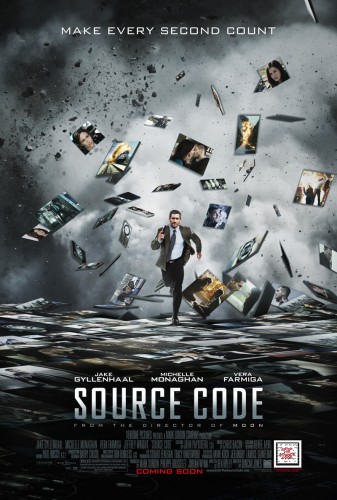
The New Yorker recently published a fascinating profile of neuroscience guru David Eagleman, in which the subject, in a somewhat tongue-in-cheek fashion, endorses his own “new religion,” Possibilianism, very similar to the agnosticism outlined by Martin Amis a couple of weeks ago. Who knows, given the current ideological climate, this could represent something of a bridge mentality. Also very much worth noting about the article is that, as Eagleman expounds at great length on perceptual chronology (how we perceive time), he discusses an insight about past- vs. present-tense living that strikes me as particularly relevant:
 Scientists are often drawn to things that bedevil them, he said. “I know one lab that studies nicotine receptors and all the scientists are smokers, and another lab that studies impulse control and they’re all overweight.”…
Scientists are often drawn to things that bedevil them, he said. “I know one lab that studies nicotine receptors and all the scientists are smokers, and another lab that studies impulse control and they’re all overweight.”…
For decades, brain researchers had taken their lead from behaviorists like B. F. Skinner. They treated their subject as a machine like any other, with inputs, outputs, and a shadowy mechanism in between. But Crick and a handful of other researchers believed that it was time to pry open Skinner’s black box—to at least begin to identify the mechanics of individual awareness. “When I started out, you basically weren’t allowed to talk about it,” Eagleman says. “Why does it feel like something to be alive? Why, when you put together millions of parts, does something suddenly have a sense of itself? All of this went out the window after B. F. Skinner. And it took a guy with Crick’s gravitas to come in and say, ‘You know what? This is a scientific problem—the most exciting of our time.’ ” Crick called it the scientific search for the soul.
In one experiment, he used an electrode to shock the brain tissue with electrical pulses. The cortex is wired straight to the skin and various body parts, so the subjects would feel a tingle in the corresponding area. But not right away: the shock didn’t register for up to half a second—an eternity in brain time. “The implications are quite astounding,” Libet later wrote. “We are not conscious of the actual moment of the present. We are always a little late.”
 “We’re stuck in time like fish in water,” Eagleman said, oblivious of its currents until a bubble floats by. It’s usually best that way. He had spent the past ten years peering at the world through such gaps in our perception, he said. “But sometimes you get so far down deep into reality that you want to pull back. Sometimes, in a great while, I’ll think, What if I find out that this is all an illusion?” He felt this most keenly with his schizophrenic subjects, who tended to do poorly on timing tests. The voices in their heads, he suspected, were no different from anyone else’s internal monologues; their brains just processed them a little out of sequence, so that the thoughts seemed to belong to someone else. “All it takes is this tiny tweak in the brain, this tiny change in perception,” he said, “and what you see as real isn’t real to anyone else.”…
“We’re stuck in time like fish in water,” Eagleman said, oblivious of its currents until a bubble floats by. It’s usually best that way. He had spent the past ten years peering at the world through such gaps in our perception, he said. “But sometimes you get so far down deep into reality that you want to pull back. Sometimes, in a great while, I’ll think, What if I find out that this is all an illusion?” He felt this most keenly with his schizophrenic subjects, who tended to do poorly on timing tests. The voices in their heads, he suspected, were no different from anyone else’s internal monologues; their brains just processed them a little out of sequence, so that the thoughts seemed to belong to someone else. “All it takes is this tiny tweak in the brain, this tiny change in perception,” he said, “and what you see as real isn’t real to anyone else.”…
Eagleman was brought up as a secular Jew and became an atheist in his teens. Lately, though, he’d taken to calling himself a Possibilian—a denomination of his own invention. Science had taught him to be skeptical of cosmic certainties, he told me. From the unfathomed complexity of brain tissue—“essentially an alien computational material”—to the mystery of dark matter, we know too little about our own minds and the universe around us to insist on strict atheism, he said. “And we know far too much to commit to a particular religious story.” Why not revel in the alternatives? Why not imagine ourselves, as he did in “Sum,” as bits of networked hardware in a cosmic program, or as particles of some celestial organism, or any of a thousand other possibilities, and then test those ideas against the available evidence? “Part of the scientific temperament is this tolerance for holding multiple hypotheses in mind at the same time,” he said. “As Voltaire said, uncertainty is an uncomfortable position. But certainty is an absurd one.”
[youtube=http://www.youtube.com/watch?v=XmJ0AkzvdN8&w=600]

COMMENTS
Leave a Reply












